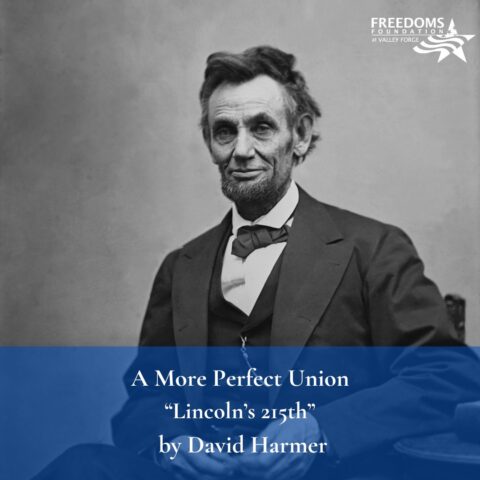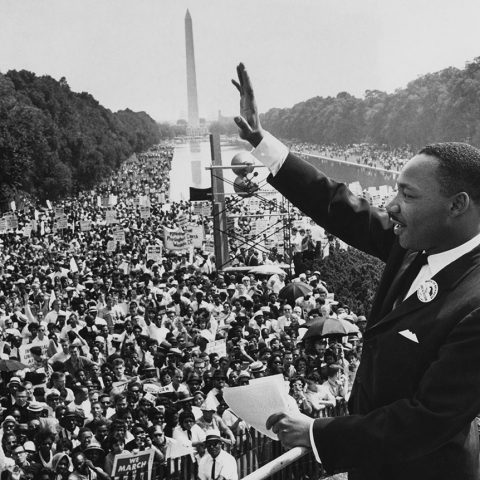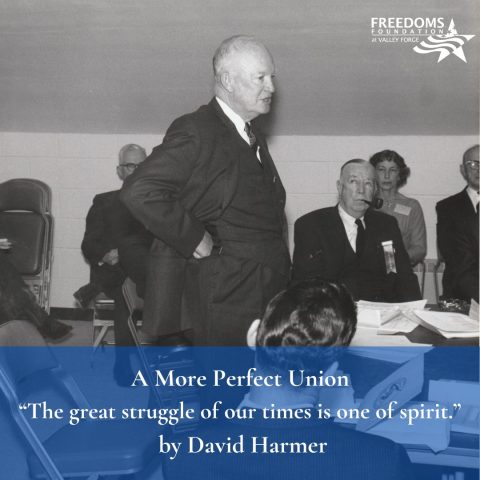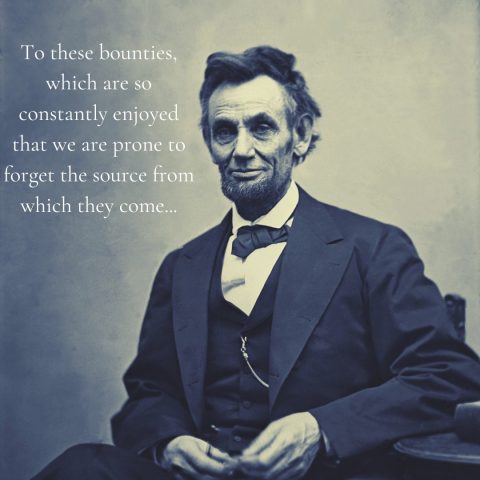Okay to love your country?

By David Harmer
“It’s such a relief to attend a P.D. [professional development course] where it’s okay to love your country!”
So said one of the teachers attending “Abraham Lincoln and His America,” our most recent week-long graduate program.
Wait—does that mean that in most professional development programs for teachers, it’s NOT okay to love your country?
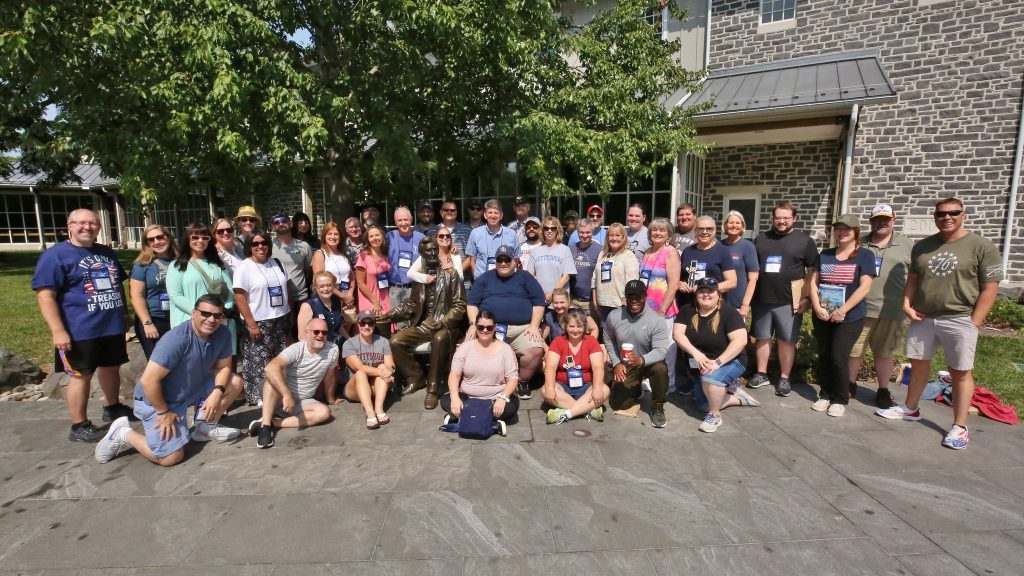
Unfortunately, that’s exactly what it means. We survey every participant in every program we offer, and we receive a steady stream of similar feedback. Freedoms Foundation at Valley Forge teaches American history, warts and all. That’s a vivid contrast to the prevailing practice of the education-industrial complex—it teaches that American history is all warts.
Our full-time staff includes former teachers who prize good civic education, however and by whomever provided. Thus, they avail themselves of opportunities to learn from other programs and places. One of our team members traveled to Mount Vernon to attend a seminar on George Washington’s leadership. Expecting to learn of Washington’s character and accomplishments, he instead heard of nothing but Washington’s perfidy as an avatar of white privilege.
“When,” our intrepid colleague dared to ask, “are we going to discuss the good that Washington did?” The response was a phalanx of hostile glares. The unspoken but obvious answer to his question: Never.
What’s remarkable about Washington isn’t that he held slaves; so did virtually everyone of his time, place, and station. What’s remarkable about Washington is that he came to recognize the immorality of slavery and its contravention of the nation’s founding ideals—and acted accordingly: in his will, he freed all his slaves (and provided for their support).
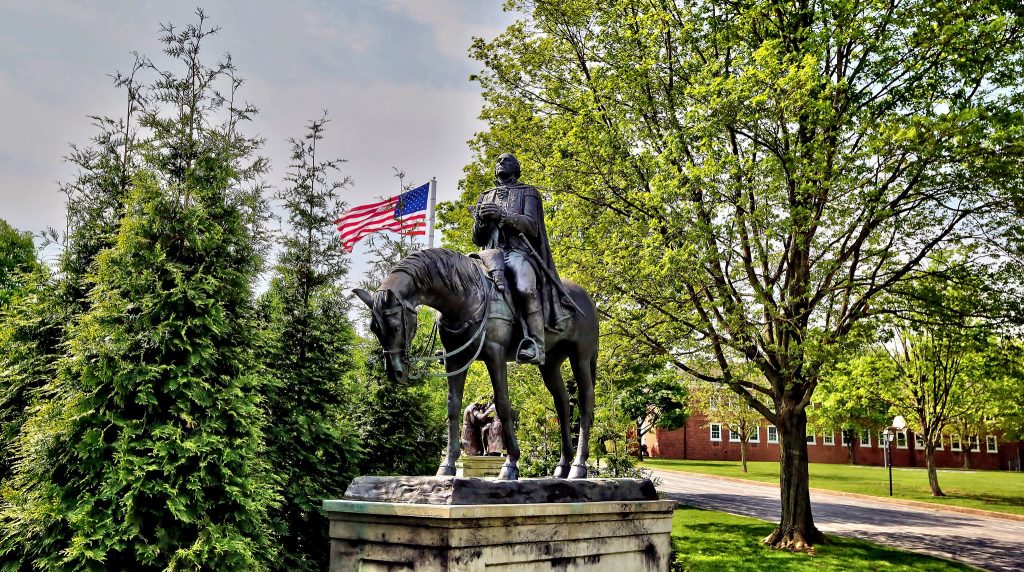
Likewise, what’s remarkable about James Madison isn’t that he held slaves, but that his leadership in the Constitutional Convention, his authorship of 29 Federalist Papers, and his indispensable role in crafting and enacting the Bill of Rights laid the foundations of a nation dedicated to the proposition, utterly incompatible with slavery, that all men are created equal. But visit Montpelier, his home, and you’ll learn primarily about Madison as a slaveholder (true, but incomplete; that’s not why he’s remembered) whose work on the Constitution was founded in racism and established slavery as a national political force (false).
The same pathology afflicts other historic sites and programs. Asked a tweet from the National Park Service unit managing Ford’s Theater, “Do you ever feel we, as a nation, put Abraham Lincoln ‘on a pedestal’?”
Do you ever feel that the moral pygmies asking such questions are putting themselves on a pedestal? Few pursuits elicit such a frisson of self-satisfaction as confessing the sins of others, especially the great. Lincoln never held slaves, abhorred slavery, devoted his presidency to its eradication, and was assassinated for his promotion of civil rights. He earned that pedestal. Could it be that urging a “more useful, more complex, or more realistic way” to view the Great Emancipator is a convenient way to avoid grappling with one’s own responsibility to address societal ills?
The incidents above reflect the metastasizing of critical theory from a fringe philosophy in the legal academy to a mainstream approach in the university, the schools, and the broader culture. It’s among the factors that make the mission of Freedoms Foundation at Valley Forge more relevant, needed, and urgent than ever.

Ascribing collective guilt to groups, particularly on the basis of race, is antithetical to the founding ideals as articulated in the Declaration, implemented in the Constitution, reinforced in the Bill of Rights, furthered through the post-Civil War amendments, and pursued, however haltingly and imperfectly, throughout American history. Prioritizing theories of collective oppression and exploitation over historical fact is antithetical to our approach, which provides deeper and more searching education, not trendier indoctrination. We’ve never shied away from the unpleasant realities of American history. But neither do we subordinate true history to anti-American ideology. We offer a richer knowledge of America’s history, even when that means examining the disparity between our nation’s ideals and its actions. That’s precisely where we part company with critical-theory apostles and their acolytes, who examine only the failures—both actual and imagined.
Warned President Dwight D. Eisenhower, our honorary chairman at the time: “No nation long lives without abiding dedication to its ideals.” To cultivate such dedication—particularly in the rising generation—we invite your support.
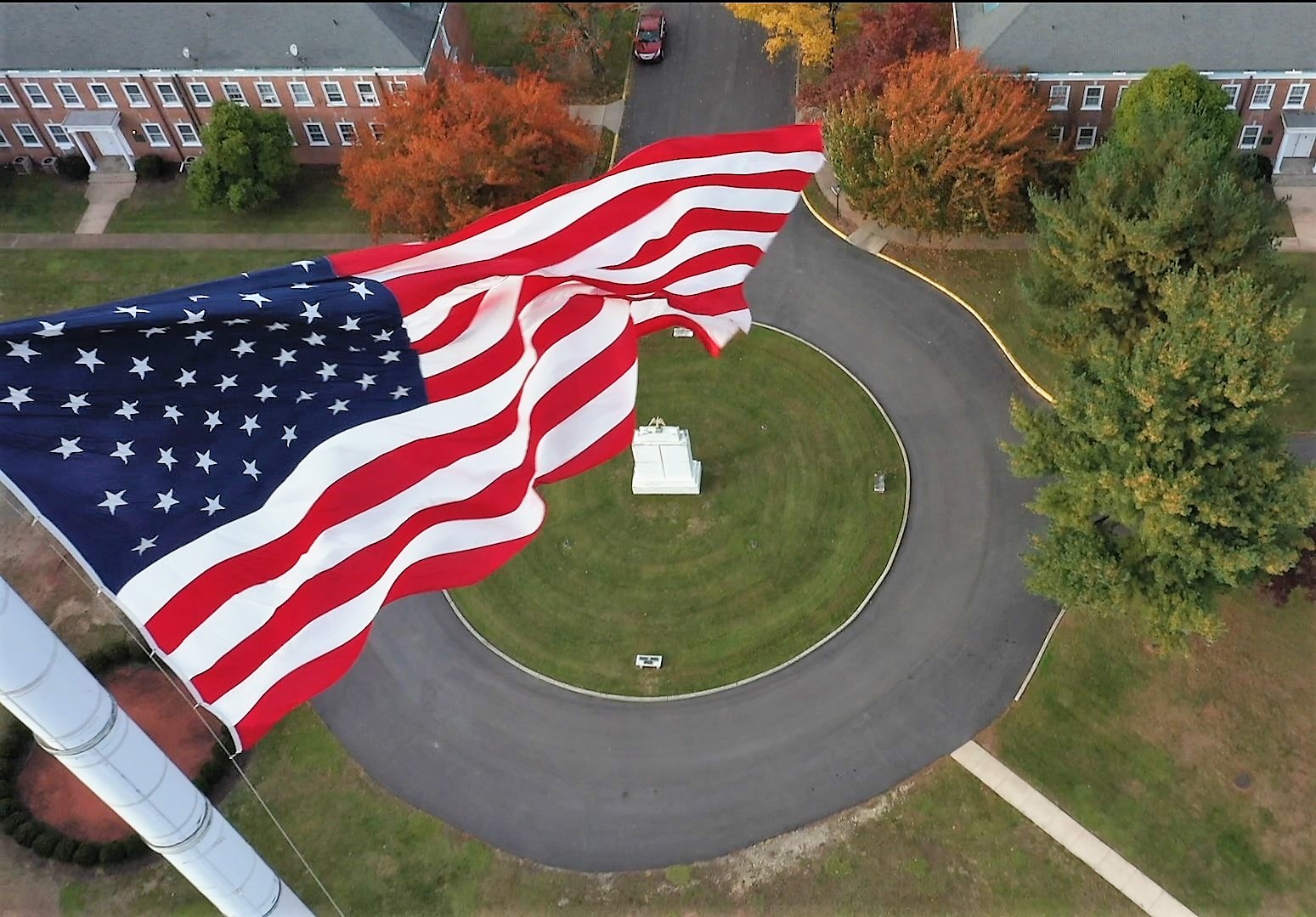
Donate Today
Supporting America’s first principles of freedom is essential to ensure future generations understand and cherish the blessings of liberty. With your donation, we will reach even more young people with the truth of America’s unique past, its promising future, and the liberty for which it stands. Help us prepare the next generation of leaders.

